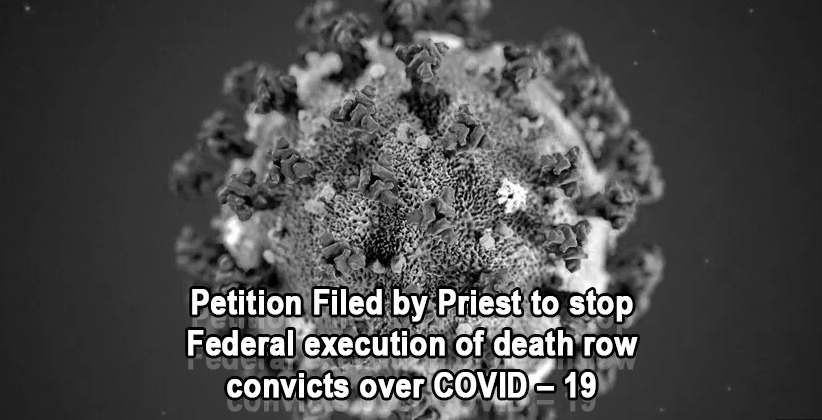A Zen Buddhist Priest filed a petition on Thursday, 2nd July 2020, complaining that the Bureau of Prisons is putting him at risk of coronavirus by continuing with the executions of prisoners during coronavirus pandemic. The priest is a spiritual adviser to one of three federal death row inmates scheduled to be executed this month.
Dale Hartkemeyer, whose religious name is Seigen, claims that he might place his future at risk if the federal government proceeded to execute Wesley Ira Purkey, as scheduled on 15th July 2020, because of his prior health issues, including respiratory problems. The 68-year-old is urging the federal judge to postpone Purkey's execution until a coronavirus vaccine becomes accessible or effective treatment becomes available. Dale Hartkemeyer claimed in court papers that he had met Purkey on a monthly basis as his priest since January 2009 to provide him with spiritual guidance and advice.
In a blog post, Dale wrote, Im being asked to make an impossible decision violate my religious beliefs or risk my health and life by attending an execution that could become a super-spreader event for Covid-19. Purkey, a devout Buddhist, is one of four federal prisoners due to be executed in July and August. Attorney General William Barr ordered the federal Bureau of Prisons to plan the executions and to lift the informal moratorium on federal capital punishment as the subject receded from the public domain.
Initially, Barr scheduled five executions set to begin in December, but some of the prisoners protested the new court protocols, claiming that the government was circumventing the legal measures to execute the captives wrongly. The executions were rescheduled last month after a lower court decision that set the executions on pause was tossed out by the appeals court. This week, the Supreme Court refused to block the executions. The federal prison system has been struggling to combat the coronavirus pandemic behind bars. As of Wednesday, there were five reported cases of coronavirus in USP Terre Haute, a jail where executions are scheduled to take place. One of the inmates there expired.
Hartkemeyer argues that he must be present at the execution to be a spiritual guide for Purkey and to provide spiritual consolation and compassion to him during this time, helping him attain peace of mind as he leaves this life. He added, Its vital that I be there, as Wess priest, to ensure this peaceful transition from life to death during his most dire moment of distress his ultimate crisis as he sits at the threshold of death, he wrote. I will chant from behind a plexiglass barrier to ensure his peace of mind while passing and, through my physical presence, serve as a spiritual reminder to Wes of all the religious lessons I have taught him as he passes on from this life. This is my sacred duty.
Cassandra Stubbs, the director of the Capital Punishment Project at the American Civil Liberties Union, who is representing Hartkemeyer stated, Hes in this position where he has to decide between fulfilling his spiritual duty and trying to attend the execution and between protecting his own life and health and safety.






